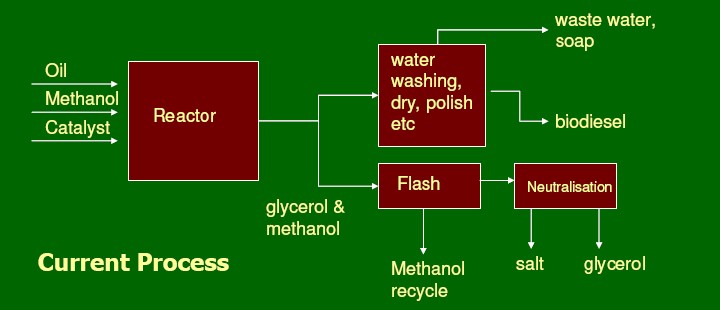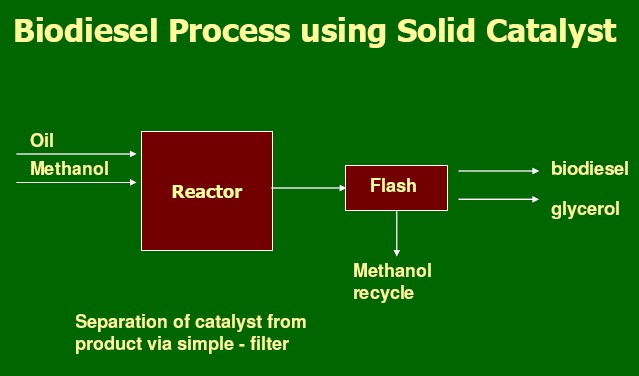|
Novel Heterogeneous Catalysts
for Biodiesel Production
Biodiesel can be produced by
transesterification of vegetable oils or animal
fats with an alcohol, especially lower alcohols
such as methanol and ethanol in the present of
catalyst. Most commercial biodiesel industries
use homogenous base catalysts for the
transesterification process since it proceeds at
a much higher rate and produced higher
conversion of biodiesel which is over 95 %.
However, these homogenous base catalysts can not
be recovered and also necessitates a glycerol
neutralisation step.

Conventional Biodiesel
Process Using Homogeneous Catalyst
Substitution of liquid
homogeneous catalysts with solid heterogeneous
catalysts is expected to yield a cleaner product
and cheaper production costs due to reuse of the
catalyst. In this work, our effort is to develop
a new heterogeneous basic catalyst that will be
used in the transesterification of rapeseed oil
using methanol at 60oC. Our concern is on
producing an active, stable and reusable
heterogeneous basic catalyst that operates at
low temperature which has an appropriate
conversion of triglycerides into biodiesel.

Intensified Biodiesel
Process Using Heterogeneous Catalyst
Presently, we have been
looking into the polymeric adsorbent with the
quaternary ammonium functional group. It is
expected that this functional group is stable
without leaching and the conversion can be
improved to above 50 % by increasing the amount
of catalyst.
For more information please contact
Prof Adam Harvey.
|